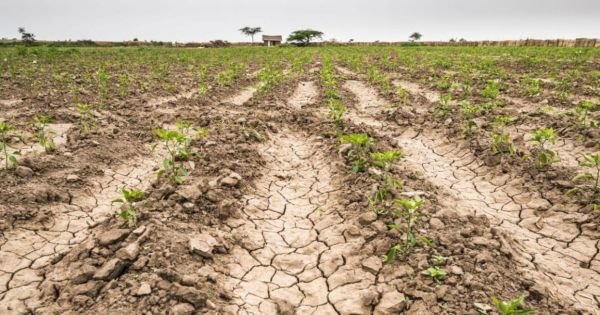Another consequence of historic Argentine drought: it could lose its position as world’s main soy meal exporter
[ad_1]
Another consequence of historic Argentine drought: it could lose its position as world’s main soy meal exporter
Brazil is the main candidate to become the leading international supplier of the soybean by-product, according to the Rosario Stock Exchange, BCR
Argentina could soon face the consequences of the historic drought ravaging its agricultural and industrial processing potential. This means the country may soon cease to be the world’s largest exporter of soy-meal, since domestic oilseed production, because of the historic drought is likely to reduced by 36% year-on-year to just 27 million tons in the 2022/23 cycle, said the Rosario Stock Exchange (BCR).
In this context, Brazil is the main candidate to become the leading international supplier of the soybean by-product, according to the BCR. It is worth noting that the last time Brazil outranked its neighbor as a soy-meal exporter was 25 years ago.
“Argentina could be exporting around 20 million tons in the 2022/23 season, which is 29% of global trade, below Brazil,” said BCR in a statement, which forecasts Brazilian soy-meal exports at around 21 million and 23 million tons.
According to the Brazilian vegetable oil industry association Abiove, shipments of soy-meal from the country are expected to grow 3.7% in 2023 to 20.7 million tons.
Argentina has dominated the international soy-meal market in recent decades thanks to its powerful milling complex, installed close to the producing regions and on the banks of the Paraná River, the natural shipment exit route.
However, a drought that started May last year to early March 2023 resulted in significant production losses, with a huge impact for the milling industry.
Last month, the grain crushers association CIARA-CEC admitted that because of the impact of the drought, Argentina’s soy processing plants are operating at the highest idle capacity in history and that imports of soybeans for processing would increase to around 8 million tons.
According to government data, agro-export companies informed soy-meal shipments for the current 2022/23 season are expected to reach 23.5 million tons, with much imported soybeans. below the 27 million tons of the 2020/21 season.
[ad_2]
Source link




